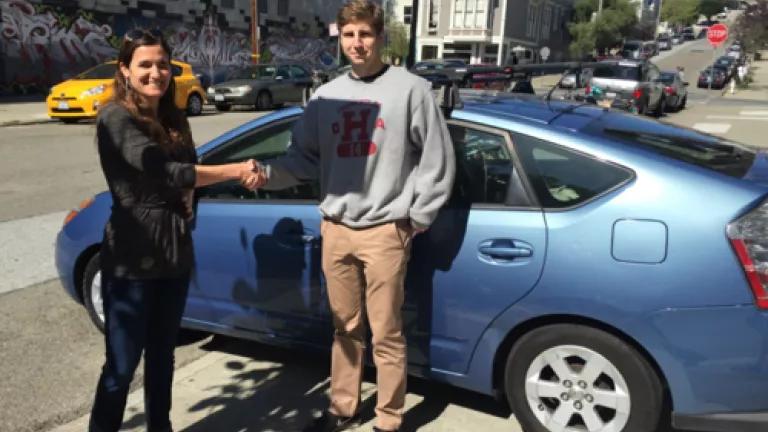
My recent decision to sell my car got some re-postings on the internet, and helped to draw attention to something very near to my heart - the first-ever Live.Ride.Share shared-use mobility conference in Southern California.
But ditching the old Prius wasn't something I did rashly. It was based on a lot of evidence and serious thought.
The average cost to own and operate a car in America, for example, is nearly $9,000 every year, according to AAA. As I mentioned in my previous blog, I had a long list of expenses related to owning a vehicle.
But no more. After 17 days of being car-free, I am delighted to scratch these expenses off my list!
And I have to admit I kind of love the big pile of cash I got in exchange for getting rid of something I really didn't need anymore. I always love (yet rarely get around to) purging my closets and basement of stuff I don't really need. Selling the car is kind of like the ultimate shed.
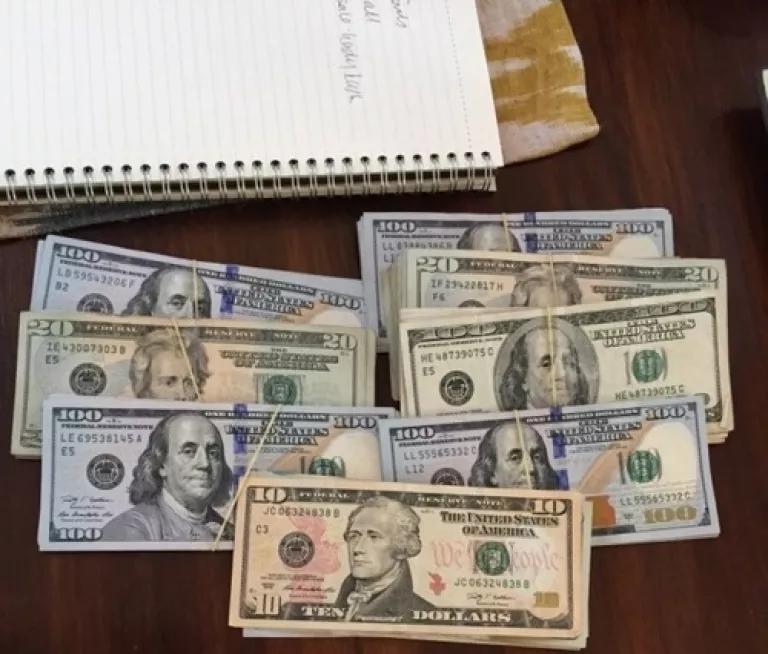
You know one thing that cash won't be spent on? Parking tickets. I've deleted all the calendar reminders for moving my car around the neighborhood to avoid street-cleaning tickets, and I have spent zero minutes looking for a parking space since I sold the car. It was also so satisfying to call up State Farm and cancel my car insurance the day after I sold the car. $1200 richer, almost instantaneously.
Instead, I'll spend much smaller portions at a time to have access to a car when I really need one -- whether to move furniture, bring home groceries, or take a weekend trip - by sharing rides through LyftLine or UberPool, or renting a car through a carshare service like CityCarShare, ZipCar, or Getaround. If I can borrow my neighbor's car on Getaround, I'm effectively cutting the cost of getting around for both of us, because I can help them make money on their car, which sits around unused an average of 95% of its life. My assistant, who has been car-free for over two years now, estimates that sharing cars and rides costs her less than $1,000 a year.
The more people who use one car, the more we can all save. It's the model of the sharing economy in action -- access over ownership.
And there is no shortage of vehicles available right in my neighborhood! This is a map of the Getaround cars available for peer-to-peer rental just around me in San Francisco. The comfort provided by this map--that I could reserve a neighbor's car whenever I needed one--was a big piece of my decision to sell my car.
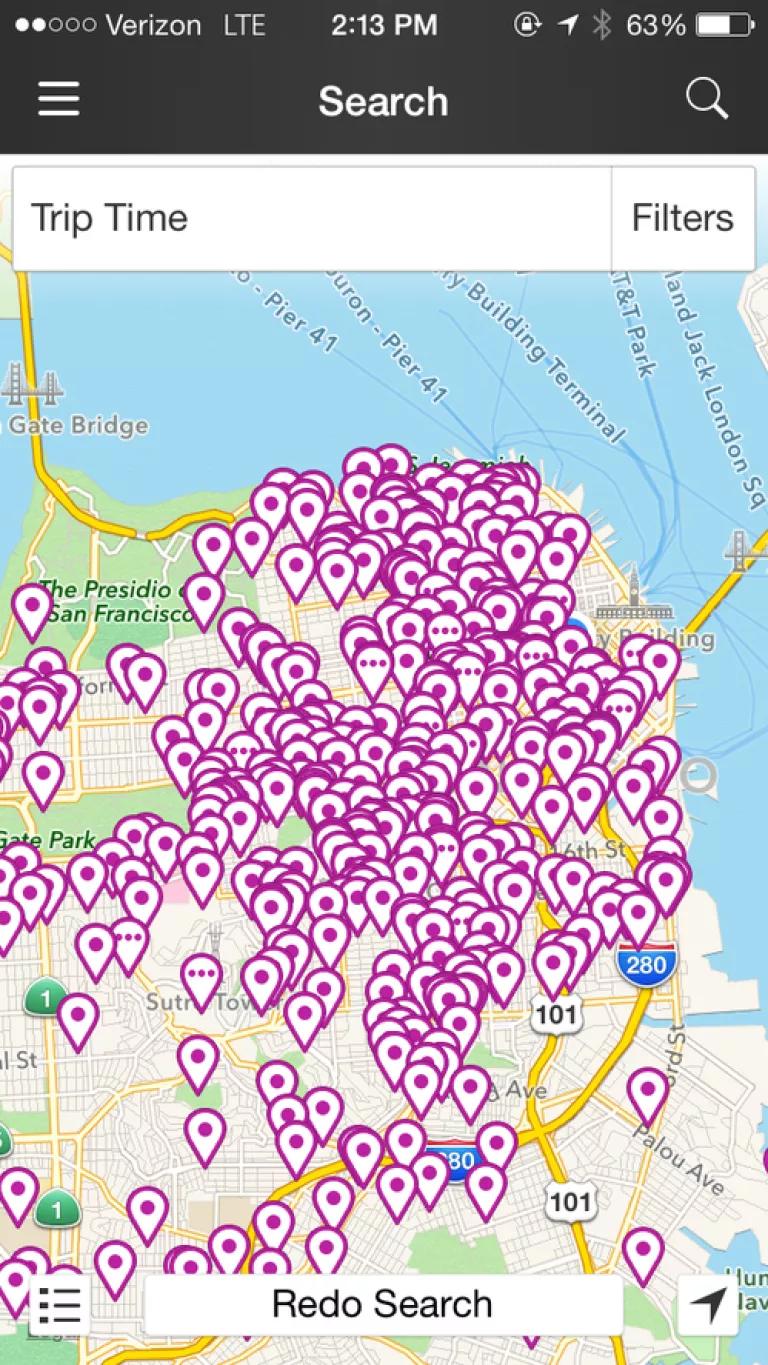
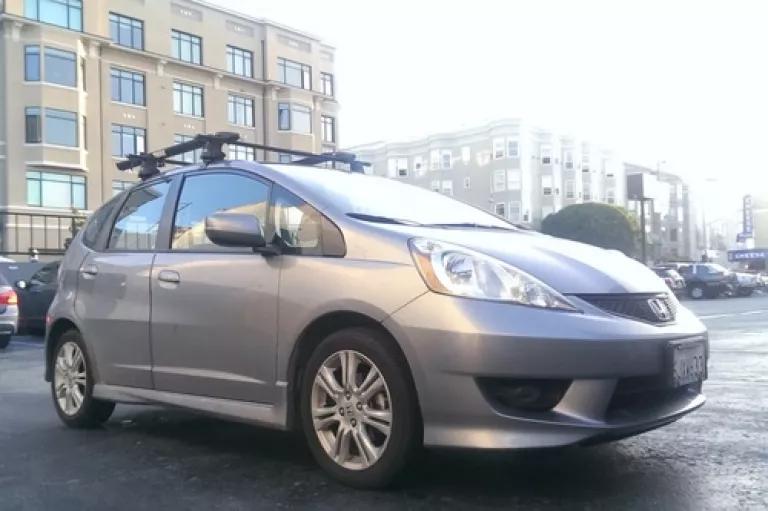
But I'll tell you, I keep learning interesting things about what happens when you pay only when you use something, rather than sinking a lot of money into a car you own.
I reserved that grey Honda Fit you see in the photo with bike racks for a trip last weekend. It was going to cost us $194.00 for 3 days. Our assumption was that we needed a car with bike racks so we could take our bikes where we were going for the weekend.
Hang on a sec. I need a car, so I can transport my bike....and it's gonna cost me almost 200 bucks. Or...
Maybe, we could just ride our bikes there! They are, after all, pretty decent modes of transportation!
So instead of bike racks for the car, we invested in a different type of bike rack!
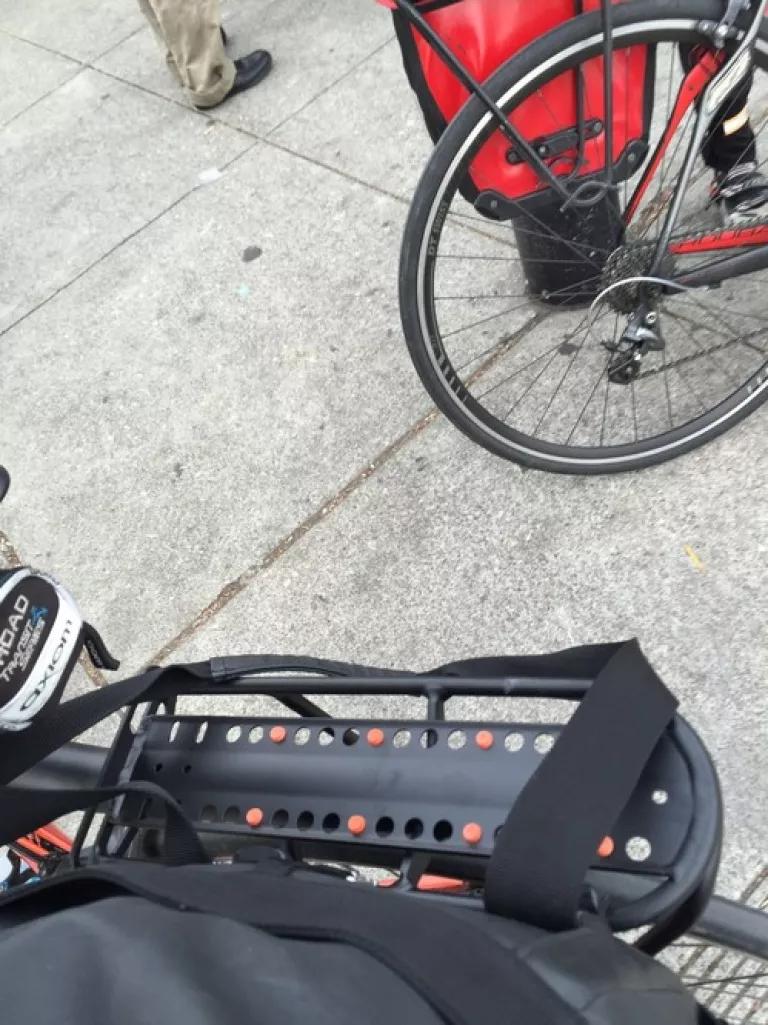
Instead of driving 150 miles with the bikes on a roof rack, we changed our plans and rode 20 miles with our luggage on our bike racks. We still had our weekend getaway, we delighted at breezing past all the traffic riding our bikes 13 miles an hour while the cars sat motionless, and best of all we avoided one of my least favorite things about driving: the moment when you have to bury your head in the sand, hold your nose (pick your favorite metaphor) and choose the least among several evils and fill up your car with gas.
Can't go to Valero or Tesoro, we know they underwrote the unsuccessful campaign to try to overturn AB 32, California's landmark global warming solutions act. What about Chevron? Nope, Chevron and the oil industry lobby, Western States Petroleum Association have spent millions to undermine California's climate leadership. Really, it's a losing proposition. Doesn't Bill McKibben of 350.org tell us that in order to really have a chance at avoiding the worst impacts of climate change, we basically have to leave a lot of the dirty fossil fuels in the ground? I have to say it felt really great to take a trip where the only source of fuel was some pasta for lunch and a couple Clif bars.
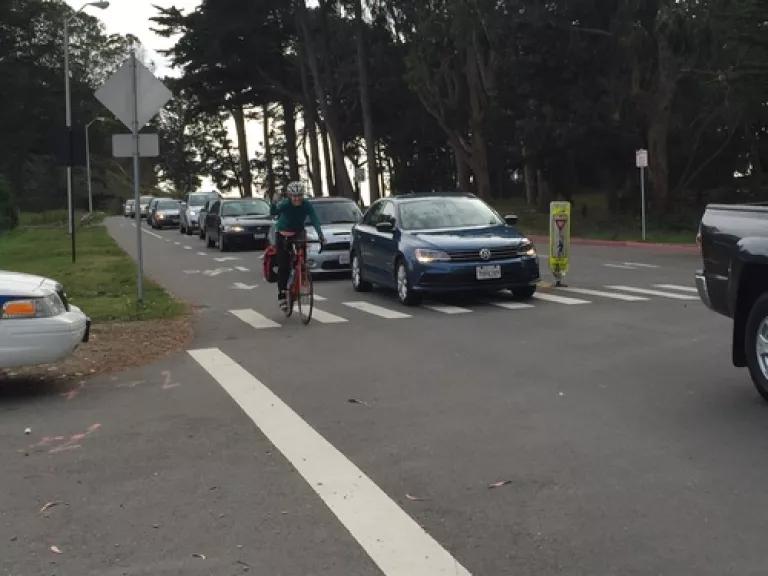
Coming home, we realized, there are even more perks to car-free weekend trips: no searching for parking on Sunday night, AND, it's easier to unpack! When you only carry one small panier worth of stuff, you're unpacked in no time.
Long story short, converting from car owning to carsharing not only has many personal benefits, but it's aligned with my professional ideals, including helping California reach our ambitious climate goals through reducing the amount we need to drive to meet our needs. I see many opportunities for shared-use mobility to help us reach these goals, and have discovered even more through the ongoing discussions coming out of Live.Ride.Share, our SoCal mobility conference held last month. These are exciting ideas, and they're ideas I want to give a lot more attention to. Keep an eye out for upcoming blogs that will capture the essence of key conference conversations and next steps, as well as a new *video* to be released shortly.
